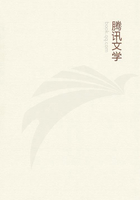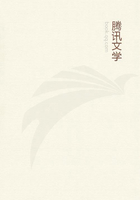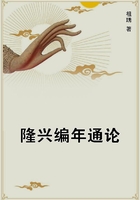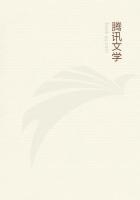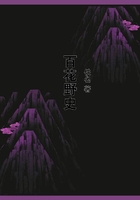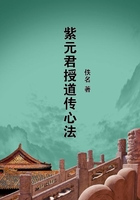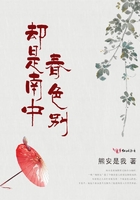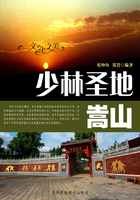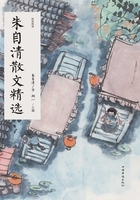'ARE you serious?--do you really believe that a machine thinks?'
I got no immediate reply; Moxon was apparently intent upon the coals in the grate, touching them deftly here and there with the fire-poker till they signified a sense of his attention by a brighter glow.
For several weeks I had been observing in him a growing habit of delay in answering even the most trivial of commonplace questions. His air, however, was that of preoccupation rather than deliberation:
one might have said that he had 'something on his mind.'
Presently he said:
'What is a "machine"? The word has been va-riously defined. Here is one definition from a popu-lar dictionary: "Any instrument or organization by which power is applied and made effective, or a desired effect produced." Well, then, is not a man a machine? And you will admit that he thinks--or thinks he thinks.'
'If you do not wish to answer my question,'
said, rather testily, 'why not say so?--all that you say is mere evasion. You know well enough that when I say "machine" I do not mean a man, but something that man has made and con-trols.'
'When it does not control him,' he said, rising abruptly and looking out of a window, whence noth-ing was visible in the blackness of a stormy night.
A moment later he turned about and with a smile said: 'I beg your pardon; I had no thought of eva-sion. I considered the dictionary man's unconscious testimony suggestive and worth something in the discussion. I can give your question a direct answer easily enough: I do believe that a machine thinks about the work that it is doing.'
That was direct enough, certainly. It was not al-together pleasing, for it tended to confirm a sad suspicion that Moxon's devotion to study and work in his machine-shop had not been good for him. Iknew, for one thing, that he suffered from insomnia, and that is no light affliction. Had it affected his mind? His reply to my question seemed to me then evidence that it had; perhaps I should think dif-ferently about it now. I was younger then, and among the blessings that are not denied to youth is ignorance. Incited by that great stimulant to con-troversy, I said:
'And what, pray, does it think with--in the ab-sence of a brain?'
The reply, coming with less than his customary delay, took his favourite form of counter-interroga-tion:
'With what does a plant think--in the absence of a brain?'
'Ah, plants also belong to the philosopher class!
I should be pleased to know some of their conclu-sions; you may omit the premises.'
'Perhaps,' he replied, apparently unaffected by my foolish irony, 'you may be able to infer their convictions from their acts. I will spare you the familiar examples of the sensitive mimosa, the sev-eral insectivorous flowers and those whose stamens bend down and shake their pollen upon the enter-ing bee in order that he may fertilize their distant mates. But observe this. In an open spot in my garden I planted a climbing vine. When it was barely above the surface I set a stake into the soil a yard away. The vine at once made for it, but as it was about to reach it after several days I removed it a few feet. The vine at once altered its course, mak-ing an acute angle, and again made for the stake.
This manoeuvre was repeated several times, but finally, as if discouraged, the vine abandoned the pursuit and ignoring further attempts to divert it, travelled to a small tree, farther away, which it climbed.
'Roots of the eucalyptus will prolong themselves incredibly in search of moisture. A well-known horti-culturist relates that one entered an old drain-pipe and followed it until it came to a break, where a section of the pipe had been removed to make way for a stone wall that had been built across its course.
The root left the drain and followed the wall until it found an opening where a stone had fallen out. It crept through and following the other side of the wall back to the drain, entered the unexplored part and resumed its journey.'
'And all this?'
'Can you miss the significance of it? It shows the consciousness of plants. It proves that they think.'
'Even if it did--what then? We were speaking, not of plants, but of machines. They may be com-posed partly of wood--wood that has no longer vi-tality--or wholly of metal. Is thought an attribute also of the mineral kingdom?'
'How else do you explain the phenomena, for example, of crystallization?'
'I do not explain them.'
'Because you cannot without affirming what you wish to deny, namely, intelligent co-operation, among the constituent elements of the crystals. When sol-diers form lines, or hollow squares, you call it reason.
When wild geese in flight take the form of a letter V you say instinct. When the homogeneous atoms of a mineral, moving freely in solution, arrange them-selves into shapes mathematically perfect, or par-ticles of frozen moisture into the symmetrical and beautiful forms of snowflakes, you have nothing to say. You have not even invented a name to conceal your heroic unreason.'
Moxon was speaking with unusual animation and earnestness. As he paused I heard in an adjoining room known to me as his 'machine-shop,' which no one but himself was permitted to enter, a singular thumping sound, as of someone pounding upon a table with an open hand. Moxon heard it at the same moment and, visibly agitated, rose and hurriedly passed into the room whence it came. I thought it odd that anyone else should be in there, and my interest in my friend--with doubtless a touch of unwarrantable curiosity--led me to listen intently, though, I am happy to say, not at the keyhole. There were confused sounds, as of a struggle or scuffle;the floor shook. I distinctly heard hard breathing and a hoarse whisper which said 'Damn you!' Then all was silent, and presently Moxon reappeared and said, with a rather sorry smile:
'Pardon me for leaving you so abruptly. I have a machine in there that lost its temper and cut up rough.'

